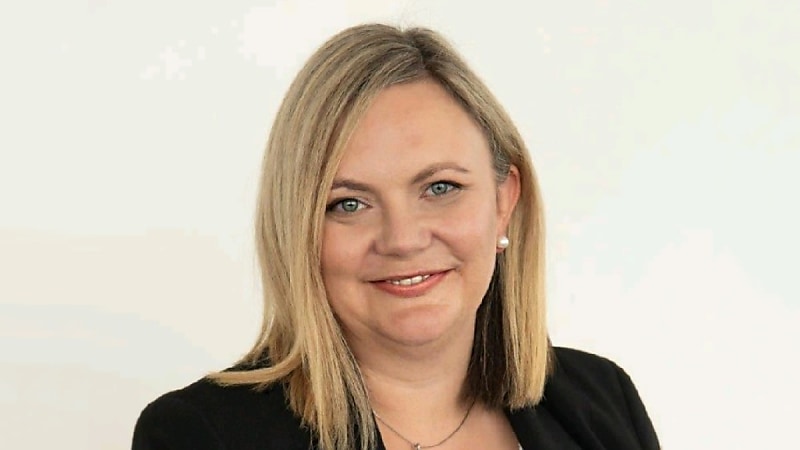Half a billion dollars withdrawn through illegal early access: ATO
More than $600 million of super was illegally withdrawn by SMSF trustees between 2020–2022 and much of the activity was done by newly established funds, the deputy commissioner of tax told the SMSF Association conference this week.
Emma Rosenzweig said that although the ATO’s data indicates most SMSFs are doing the right things, illegal early access to super is the regulator’s greatest concern in the sector, and it has undertaken a “significant new program” to estimate the amount of money illegally withdrawn by trustees.
“This illegal early access estimate allows us to measure the size, scale and trajectory of this risk, as well as gather intelligence to help address this issue and early indicators suggest that illegal early access behaviour is still prevalent in 2022 data,” Ms Rosenzweig said.
She said that for 2020, the ATO estimated that $380 million of super was illegally withdrawn by SMSF trustees, adding the figure would have been closer to $500 million if the regulator had not protected more than $125 million leaving the system as part of its new registrant risk reviews.
In 2021 it was estimated more than $255 million of super was illegally accessed with almost $170 million additional protected at registration.
“Don’t let the scale of the overall super system diminish the significance of this issue. These are large amounts of money and do not include prohibited loans. Across these two years, a total of $635 million of superannuation savings has left the system illegally through SMSFs,” she said.
Ms Rosenzweig continued that prohibited loans were another way trustees inappropriately provide financial benefits to members or related parties and in 2020 and 2021 the ATO analysis found SMSFs entered into more than $200 million in prohibited loans each year, with 75 per cent of those being repaid.
“These estimates really highlight why, as a regulator, we are so concerned and why it’s important for all of us to ensure SMSFs aren’t seen as a vehicle to access super illegally or to provide short-term finance,” she said.
“Our findings indicate newly established SMSFs were more likely to engage in this behaviour compared to established funds with around two-thirds of the $930 million at risk over these two years appearing to relate to individuals entering the system with no genuine intent to run an SMSF.”
She added the ATO is continuing to see many new trustees enter the system with the sole intent of raiding their retirement savings, often facilitated by promoters charging a large fee.
“When a newly established SMSF makes a rollover but then doesn’t lodge their first annual return, this is a red flag. Currently, 16 per cent of funds registered in 2022 have failed to lodge their first return, which means these returns are at least 12 months overdue. Of these, 50 per cent, or 2500, appear to have rolled money into their SMSF,” she said.
Furthermore, she said there are also existing trustees who inappropriately access their super and stop lodging to avoid detection and for the 2022 year there are around 20,000 SMSFs that for the first time have failed to meet their lodgment obligations who also have members that have not yet reached preservation age.
Finally, she said the ATO is also seeing existing trustees who continue to lodge but have breached the operating standards and a contravention is reported. In 2022, the ATO received around 18,000 auditor contravention reports for around 13,000 SMSFs which include nearly 40,000 contraventions.
Almost 34 per cent of these contraventions indicate trustees may have inappropriately accessed their retirement savings by breaching payment standards, establishing prohibited loans with members and relatives, or not meeting in-house asset requirements.
She said there are several reasons why trustees illegally access their retirement savings and the ATO has found that people who dip into their super illegally may be dealing with some form of financial stress or other personal issues.
To try and combat the situation, Ms Rosenzweig said the ATO is providing support and guidance products, undertaking new registrant reviews, and removing SMSFs from its super fund lookup where they fail to comply.
“The new registrant reviews have protected significant amounts of retirement savings leaving the system before it should. We risk assess every new registrant and the way in which we do this is becoming more sophisticated,” she said.
“For example, we identify individuals with outstanding personal lodgment obligations, overdue tax debts and those who’ve previously made an early release of super claim.”
As part of its risk reviews, the ATO specifically looks for individuals who had previously applied for early access and then attempted to set up an SMSF and in 2023 it identified and reviewed 1,300 new SMSF registrants in this situation.
The regulator has also scaled up its compliance actions and as a result, the number of sanctions it has applied has significantly increased.
“Anyone disqualified can never be an SMSF trustee again and their names are on the public record forever, for all to see,” she said.








